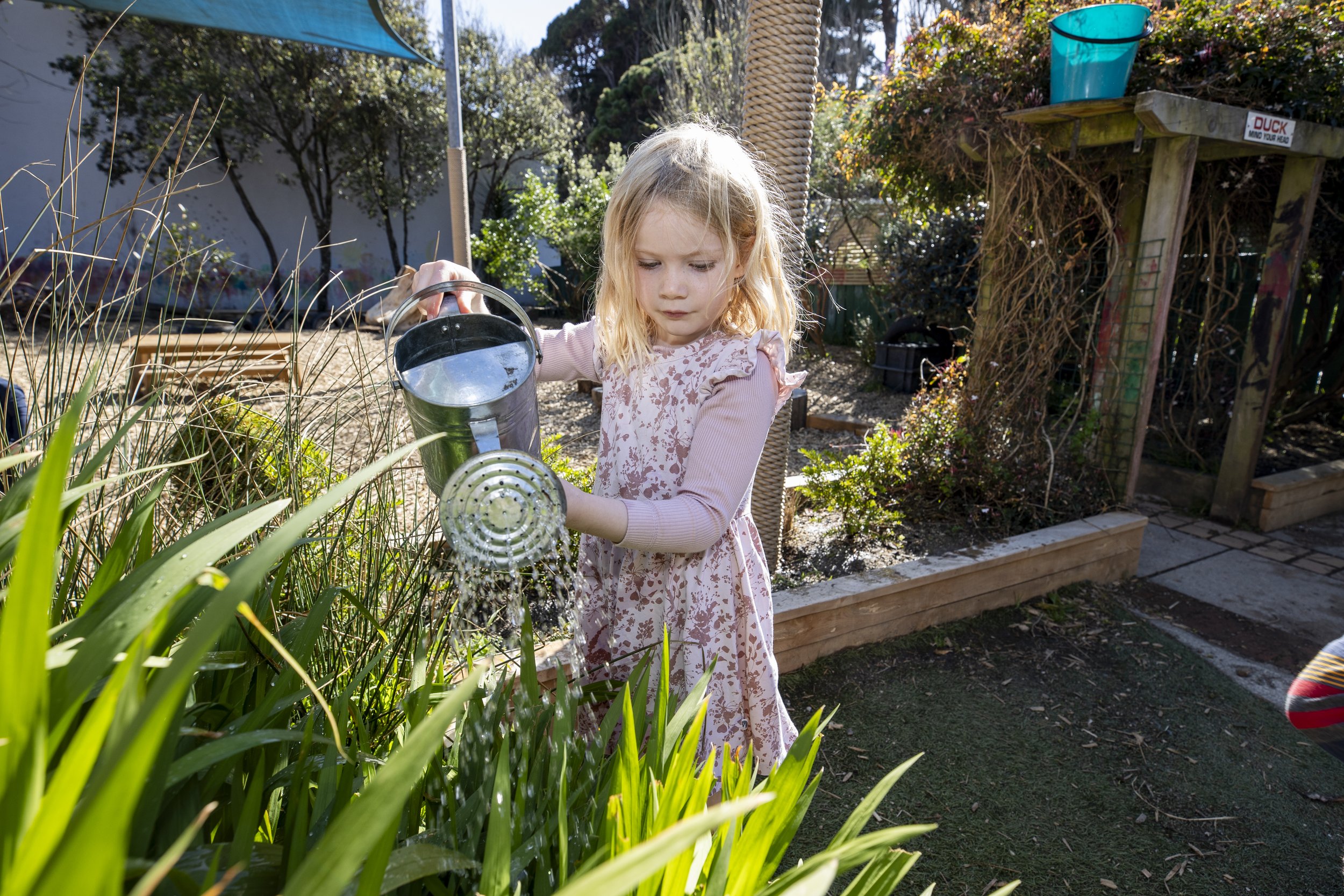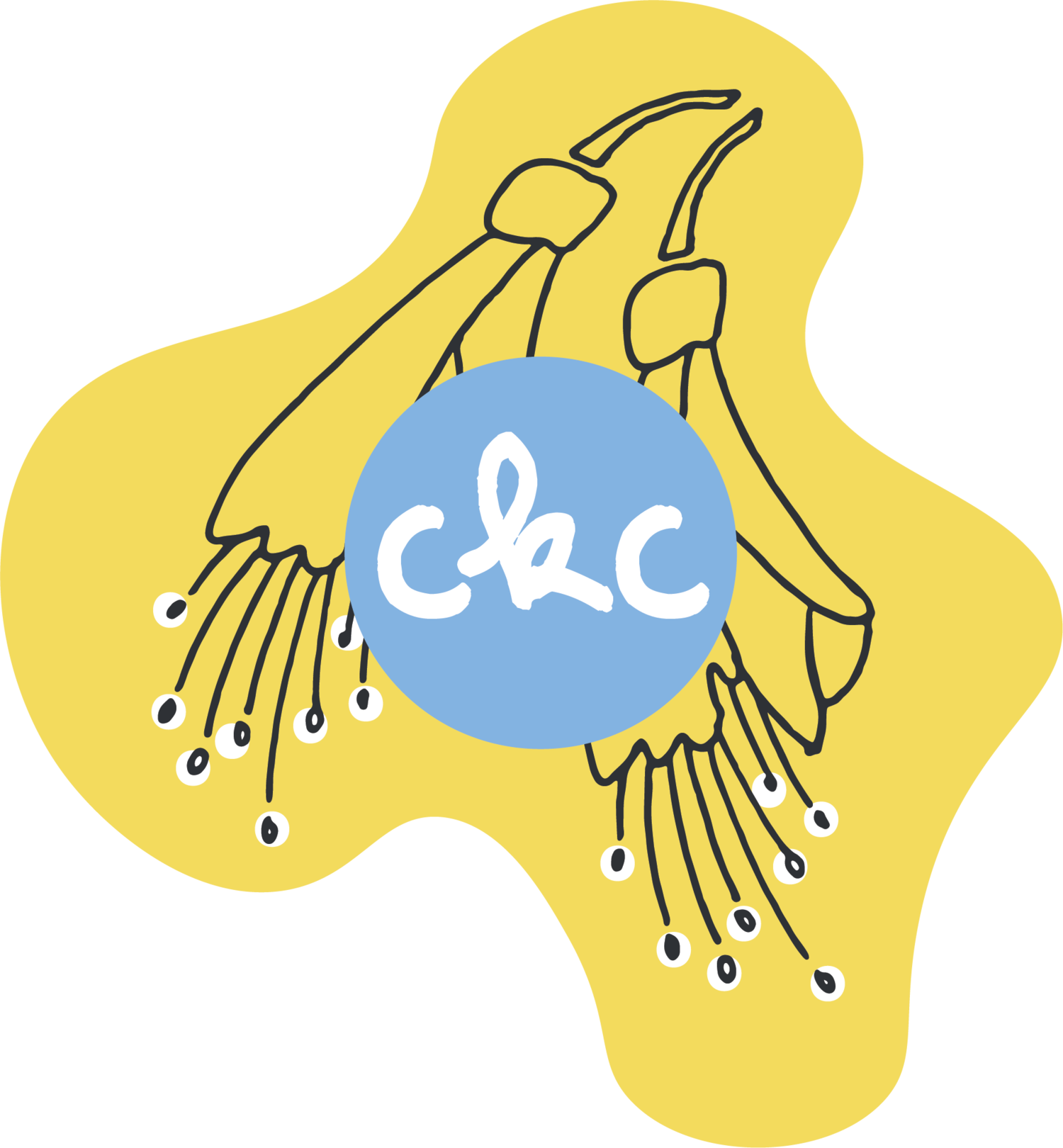
Our Philosophy
At CKC we view ourselves as a whānau, and as a community; a collective of the people and cultures that make up and stand on this whenua- a Tūrangawaewae for all. This vision informs and gives purpose to everything that we do, and all that we are.
Our community is committed to upholding and empowering our Te Tiriti o Waitangi partnership and responsibilities- this is woven through our curriculum, our philosophy and through our practice. We continuously work to deepen and embed our knowledge and implementation of Te Reo, and kaupapa Māori.
Our kaiako are committed professionals who continue to enhance their practice/profession through professional development, and advocacy for the sector, tamariki, and their whānau.
Manaakitanga-
Manaakitanga is the heart of our philosophy and practice, it is who we are, and what we do at CKC. We lead with kindness, compassion, and inspire empathy- at CKC this looks like; encompassing and accepting diversity, welcoming and including others into our whānau, supportive language, calm voices, warmth, and affection . Tamariki, kaiako and whānau are encouraged and able to connect, give, be active, take notice and to keep learning in our environment. We are dedicated to fostering a space in which our team, our tamariki and their whānau all feel respected, heard and represented.
Free play underpins our curriculum- this is how tamariki learn. At CKC play is child-led; kaiako observes and scaffolds this play through the environment, resources and planning. Our Kaiako recognise that children need to have their emotional needs met before being able to engage fully within their learning/play.
Whanaungatanga-
We know that Whānau are the experts on their children. We seek their input and collaborate with them to create harmony and continuity between the home and center environments. As a community we are committed to celebrating and supporting the diversity of tamariki, whanau and kaiako.
Loving, reciprocal and nurturing relationships are the foundation of our curriculum. Our mixed age setting is a testament to the tuakana-teina relational learning model, and the reciprocal learning and development that happens subsequently is clear and well documented in our space. By establishing and maintaining a sense of belonging with each individual child and their whānau, we grow these learning partnerships- built of trust, secure attachment, respect, warmth, care.
Kaitiakitanga-
Tamariki grow a strong connection and respect for nature,our whenua and are able to develop their naturalistic intelligence and eco literacy skills at CKC. Our kaiako encourage a sense of kaitiakitanga by providing children with regular opportunities to connect with Te Taiao|the wider natural environment and materials drawn from nature. We are continuously finding new ways to incorporate sustainable practices in all aspects of our CKC curriculum, and the daily running of the center- teaching the tamariki how to care for our planet through role modeling and programmes such as enviroschools . Kaiako empower tamariki to take on their role as kaitiaki of Aotearoa and papatūānuku
Wairuatanga-
We believe all children are born with mana inherited from their tīpuna. Children are supported to understand their own mana atuatanga. This allows them to be competent and confident learners and communicators- healthy in mind, body and spirit, secure in their sense of belonging and in the knowledge that they make a valued contribution to society. We place strong importance on the well-being of tamariki, kaiako and our whānau. We support tamariki to build on their emotional intelligence, understanding, expressing and trusting themselves and their feelings. Our rituals and routines are part of who we are and help children refuel throughout the day and anticipate what's to come. Kaiako and children value these times for a moment of connection, recentering and togetherness throughout the day. Rituals show our appreciation to wairua, mauri and our whānau.
The physical environment makes an important contribution to children’s identity, wellbeing, and engagement. Our environment is welcoming and warm, set up to both invite, inspire and empower our tamariki and kaiako. We believe that children's motor development should unfold naturally, and at their own pace, we support tamariki to assess safe risk taking where failure and success are both valued and the learning that happens subsequently is understood and cherished. Our philosophy is influenced/inspired by RIE & Pikler philosophies/teachings.
Glossary:
Ako- The concept of ako describes a teaching and learning relationship, where the educator is also learning from the student
Child led- Child-led learning is a term used to describe education programs in which children are responsible for deciding what and/or how to learn.
Eco Literacy- The ability to understand the natural systems that make life on earth possible.
Emotional intelligence/competence -includes understanding what we are feeling and why we are feeling it, as well as appreciating how others may be feeling and the impact of our actions on them. It also includes responding to our feelings and expressing them appropriately – and, when the feelings are strong or difficult to manage, in ways that help us calm down and feel better.
Free play- Free play is when children have full freedom to play in whatever way they want. “They can choose everything – they have the freedom to select their play materials, interest area and even the plot
Kaiako- Teacher/ Educator. Composed of two words: kai meaning food, and ako meaning to learn or create knowledge together.
Kaitiaki- A kaitiaki is a person, group or being that acts as a carer, guardian, protector and conserver.
Kaitiakitanga - term used for the concept of guardianship of the sky, the sea, the land and the wider spiritual world. A kaitiaki is a guardian, and the process and practices of protecting and looking after the environment are referred to as kaitiakitanga.
Kaupapa Māori- Māori approach, Māori topic, Māori customary practice, Māori institution, Māori agenda, Māori principles, Māori ideology - a philosophical doctrine, incorporating the knowledge, skills, attitudes and values of Māori society.
Mana- Mana refers to an extraordinary power, essence or presence. Co-Operative -Cooperatives are businesses owned by “member-owners”. Co-ops are democratically controlled by their member-owners. Services or goods provided by the co-op benefit and serve the member owners.
Manaakitanga -meaning hospitality and generosity, refers to the practice of showing kindness, respect, and support to one another, emphasising responsibility and reciprocity. This involves providing for their needs and comfort, and demonstrating warmth and hospitality.
Mana atuatanga- uniqueness and spiritual connectedness.
Mauri- Life force
Natural movement - Children’s bodies are able to grow and function without interference/help of an adult eg: standing them up and walking them along before they are able to do so independently.
Naturalistic intelligence- the ability to identify, observe, categorize, understand, and manipulate natural elements like plants, animals, and the environment. People with high naturalistic intelligence are interested in nurturing, exploring, and learning about the environment and other species.
Papatūānuku- Earth mother. Papatūānuku is the land. She is a mother earth figure who gives birth to all things, including people. Trees, birds and people are born from the land, which then nourishes them.
Rituals and routines-
Routines help children feel safe, develop life skills and build healthy habits. Routines help adults feel organised, reduce stress and find time for enjoyable activities. Good routines are well planned, regular and predictable. Rituals, on the other hand, are a little different. Rituals make ordinary moments extraordinary.Scaffold - Scaffolding is a teaching technique in which kaiako supports learning in distinct segments, providing less and less support as students master new concepts or material.
Tamariki- Children
Tangata whenua- used to describe the Māori people of a particular locality, or as a whole as the original inhabitants/ indigenous peoples of Aotearoa New Zealand.
Te Reo Māori - The Māori language. Indigenous language of Aotearoa
Te Taiao- The natural world that contains and surrounds us — the land, water, climate and living beings. It refers to the interconnection of people and nature .
Te Tiriti o Waitangi - Aotearoa New Zealand’s founding document.
Tīpuna/Tūpuna- Ancestor/s
Tuakana-teina- An older or more expert tuakana (brother, sister or cousin) helps and guides a younger or less expert teina (originally a younger sibling or cousin of the same gender). -See also: Ako
Tūrangawaewae - Literally tūranga (standing place), waewae (feet), it is often translated as ‘a place to stand’. Tūrangawaewae are places where we feel especially empowered and connected. They are our foundation, our place in the world, our home.
Wairua- The spirit or the soul
Whānau- Family
Whanaungatanga -is about relationship, kinship and a sense of family connection. It is created through shared experiences and working together and provides people with a sense of belonging.
Whenua- The Māori word for land, whenua, also means placenta. All life is seen as being born from the womb of Papatūānuku, under the sea.
Pikler / RIE Philosophy:
-The Pikler approach is based on a kind and respectful relationship between an adult and infant, through tender care moments, a naturally paced motor development, free movement and uninterrupted play.
Read More : https://thepiklercollection.weebly.com/pikler-principles.html
-RIE®‘s educational approach is referred to as Educaring, and summarized as follows
The infant needs an intimate, stable relationship with at least one primary person (e.g., a parent figure).
This relationship is best developed during caregiving activities. These same activities offer excellent opportunities for the development of cooperation, language, body image, consent and mutuality in task-oriented experiences.
The infant is an active participant rather than a passive recipient while being cared for.
The infant needs a safe, carefully-designed environment in which to move, explore and manipulate objects. They thus achieve the stages of gross motor and sensory-motor development in their own time.
Spontaneous, self-initiated activities, which the infant pursues freely and autonomously, have an essential value for physical and mental development. The pleasure in the process of exploration and mastery is self-reinforcing. The infant becomes intrinsically motivated to learn.
Meanwhile, the Educarer® must learn to observe, understand and respect the individuality of the infant and respond with sensitivity and empathy to the cues the infant gives.
Read More: https://rie.org/educaring-approach/
